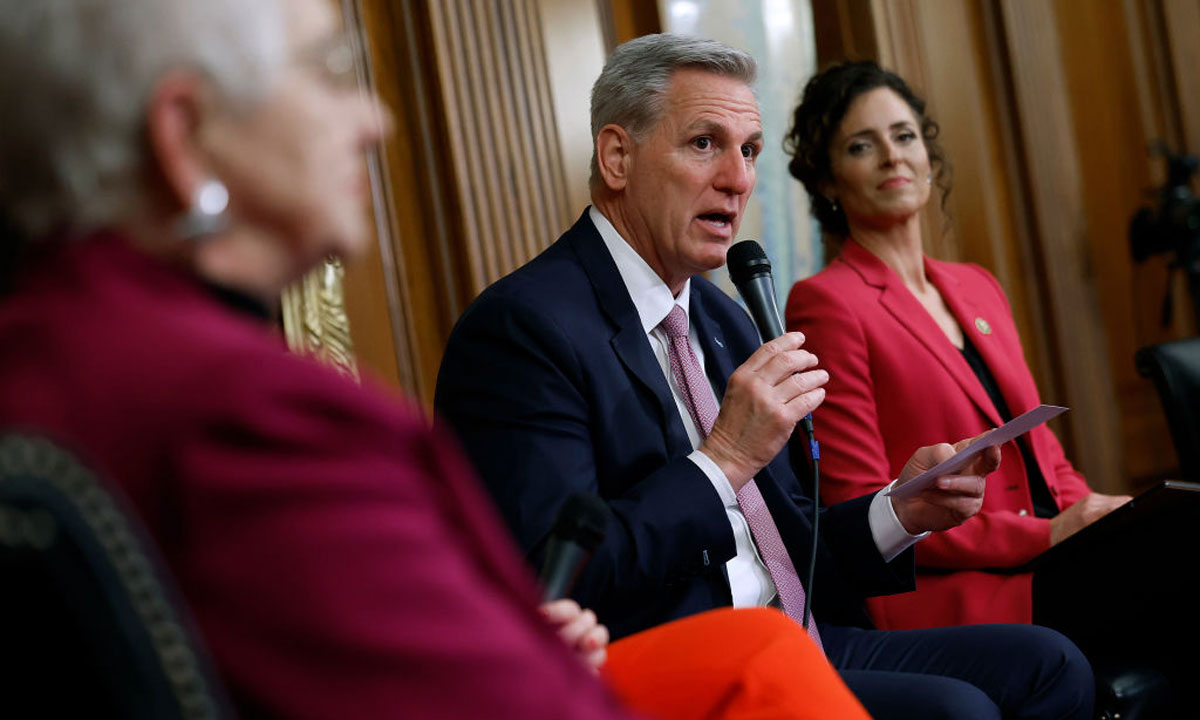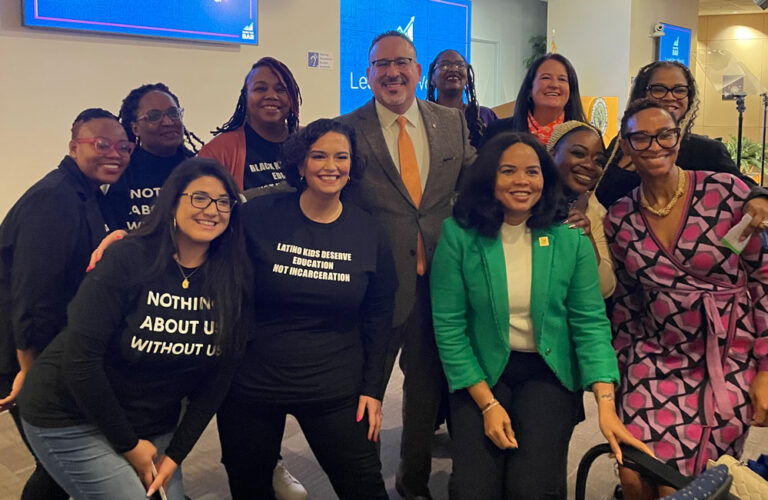House GOP Pushes Parents Bill of Rights, But Some Advocates Call it ‘Tone Deaf’
The vocal National Parents Union is now seeking House Democrats’ help in defeating the proposal

Get stories like this delivered straight to your inbox. Sign up for The 74 Newsletter
A vocal parent advocacy organization says the federal “Parents Bill of Rights” proposal put forward by House Republicans last week is out of touch with the concerns of many American families and hopes to kill it before it passes the chamber.
Last Wednesday, House Speaker Kevin McCarthy of California joined fellow GOP members to introduce the five-point plan, which calls for greater transparency into what districts teach, how much they spend and how they publicly report whether violence has occurred at a school. The next step is for education committee members to review the bill and offer any amendments before it reaches the floor.

“It’s just so tone deaf to where parents are. How do you have a parent’s bill of rights in 2023 that doesn’t mention student progress or the right to read and write?” asked Keri Rodrigues, president of the National Parents Union. McCarthy’s press conference, she said, lacked representation of minority parents and children. “I was like, ‘Do Republicans know any Black and brown people?’ “
She organized a gathering of several parent groups who plan to meet Monday with Democratic leaders in the House in an effort to defeat the bill.
Republicans pledged to introduce such a bill once they captured the House majority, arguing that schools ignored parents’ pleas to reopen during the pandemic and have pushed controversial lessons about race and gender. But with Democrats still in control of the Senate, it’s highly unlikely the bill would pass in its current form. In 2021, Republican Sen. Josh Hawley of Missouri sponsored a similar bill, but it never received a hearing.
The House legislation echoes laws that many Republican-led states, including Florida, Georgia and Louisiana, passed last year. Some experts note that there’s no constitutional basis for a federal version, but that issue didn’t come up last week.
“Parents are not going to be kept in the dark,” Rep. Aaron Bean of Florida promised during last week’s event. “Parents are going to be part of the educational process.”
He and other House members heard from a Fairfax County, Virginia parent who said her child was suspended 11 times for not wearing a mask when the district still had a mandate and from a parent who filed hundreds of public record requests with the South Kingstown district in Rhode Island seeking information on how schools teach history and gender issues. The school board considered suing the parent, but ultimately did not.
Rodrigues and Campaign for Our Shared Future — a nonpartisan organization — say such bills are an effort to keep the culture wars alive. They stress that federal and many state laws already give parents the right to examine curriculum and opt their children out of lessons they find inappropriate.
Rodrigues said she wouldn’t feel comfortable proposing her own bill of rights until the organization consulted a broad mix of families.
But based on the National Parents Union’s frequent polling, she would like to see, for example, guarantees that students graduate ready to succeed in college without remediation, that parents have up-to-date information on their children’s academic progress and that schools offer free afterschool programs and tutoring as needed.
Last year, Rodrigues pushed for the U.S. Department of Education to form a parent council so Education Secretary Miguel Cardona could regularly hear from parents involved in their children’s schools.
But the department nixed the idea after conservative organizations sued in federal court, saying that the proposed council lacked representation from their groups and didn’t follow proper advisory committee procedures.
National Parents Union members continue to bring their concerns to Cardona anyway. Several attended his January speech outlining priorities, such as multilingualism and higher teacher pay.
“They said, ‘We didn’t hear you talking about the regression that children with special needs faced,’” Rodrigues said. ‘They really held his feet to the fire.”

According to the department, Cardona also continues to meet with families during any school visits, and agency staff follow up with parents later, if needed.
“Parent partnership is not about giving in to the loudest voices or political grandstanding,” the secretary wrote in a March 1 op-ed timed to Republicans’ bill. “It’s about welcoming the voices of all families, and inviting parents to be a real part of decision-making processes in education.”
Get stories like these delivered straight to your inbox. Sign up for The 74 Newsletter

;)
